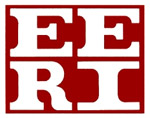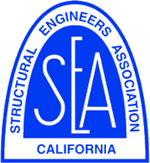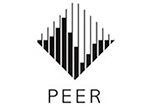
U.S. Geological Survey | Earthquakes (USGS)
The USGS serves the Nation by providing reliable scientific information to describe and understand the Earth; minimize loss of life and property from natural disasters; manage water, biological, energy, and mineral resources; and enhance and protect our quality of life.
Earthquake Engineering Research Institute (EERI)
The Earthquake Engineering Research Institute is a national, nonprofit, technical society of engineers, geoscientists, architects, planners, public officials, and social scientists. The objective of the Earthquake Engineering Research Institute is to reduce earthquake risk by (1) advancing the science and practice of earthquake engineering, (2) improving understanding of the impact of earthquakes on the physical, social, economic, political, and cultural environment, and (3) advocating comprehensive and realistic measures for reducing the harmful effects of earthquakes.
Structural Engineers Association of California (SEAOC)
SEAOC is respected as an authoritative world leader in the practice of structural and earthquake engineering, as a nationally influential participant in structural code and standard development and as a valuable resource to practicing structural engineers in California. SEAOC is divided into 5 different organizations. There is a statewide level and 4 regional organizations.
Earthquakes | Ready.gov
Launched in February 2003, Ready is a national public service advertising (PSA) campaign designed to educate and empower Americans to prepare for and respond to emergencies including natural and man-made disasters. The goal of the campaign is to get the public involved and ultimately to increase the level of basic preparedness across the nation.
Applied Technology Council (ATC)
The Applied Technology Council (ATC) is a nonprofit, tax-exempt corporation established in 1973 through the efforts of the Structural Engineers Association of California. ATC’s mission is to develop and promote state-of-the-art, user-friendly engineering resources and applications for use in mitigating the effects of natural and other hazards on the built environment. ATC also identifies and encourages needed research and develops consensus opinions on structural engineering issues in a nonproprietary format.
California Earthquake Authority (CEA)
The California Earthquake Authority is a publicly managed, largely privately funded organization that provides catastrophic residential earthquake insurance and encourages Californians to reduce their risk of earthquake loss.
Pacific Earthquake Engineering Research Center (PEER)
The Pacific Earthquake Engineering Research Center (PEER) is a multi-institutional research and education center with headquarters at the University of California, Berkeley. Investigators from over 20 universities, several consulting companies, plus researchers at various State and Federal government agencies contribute to research programs focused on performance-based earthquake engineering in disciplines including structural and geotechnical engineering, geology/seismology, lifelines, transportation, risk management, and public policy.
The PEER mission is to develop, validate, and disseminate performance-based seismic design technologies for buildings and infrastructure to meet the diverse economic and safety needs of owners and society.
Consortium of Universities for Research in Earthquake Engineering (CUREE)
The Consortium of Universities for Research in Earthquake Engineering (CUREE) is a non-profit organization, established in 1988, devoted to the advancement of earthquake engineering research, education and implementation.
Building Seismic Safety Council (BSSC)
The Building Seismic Safety Council (BSSC), established by the National Institute of Building Sciences (NIBS), develops and promotes building earthquake risk mitigation regulatory provisions for the nation.
Live Watch | Earthquake Preparedness
LiveWatch provides information on earthquake, hurricane and tropical storm safety procedures.











